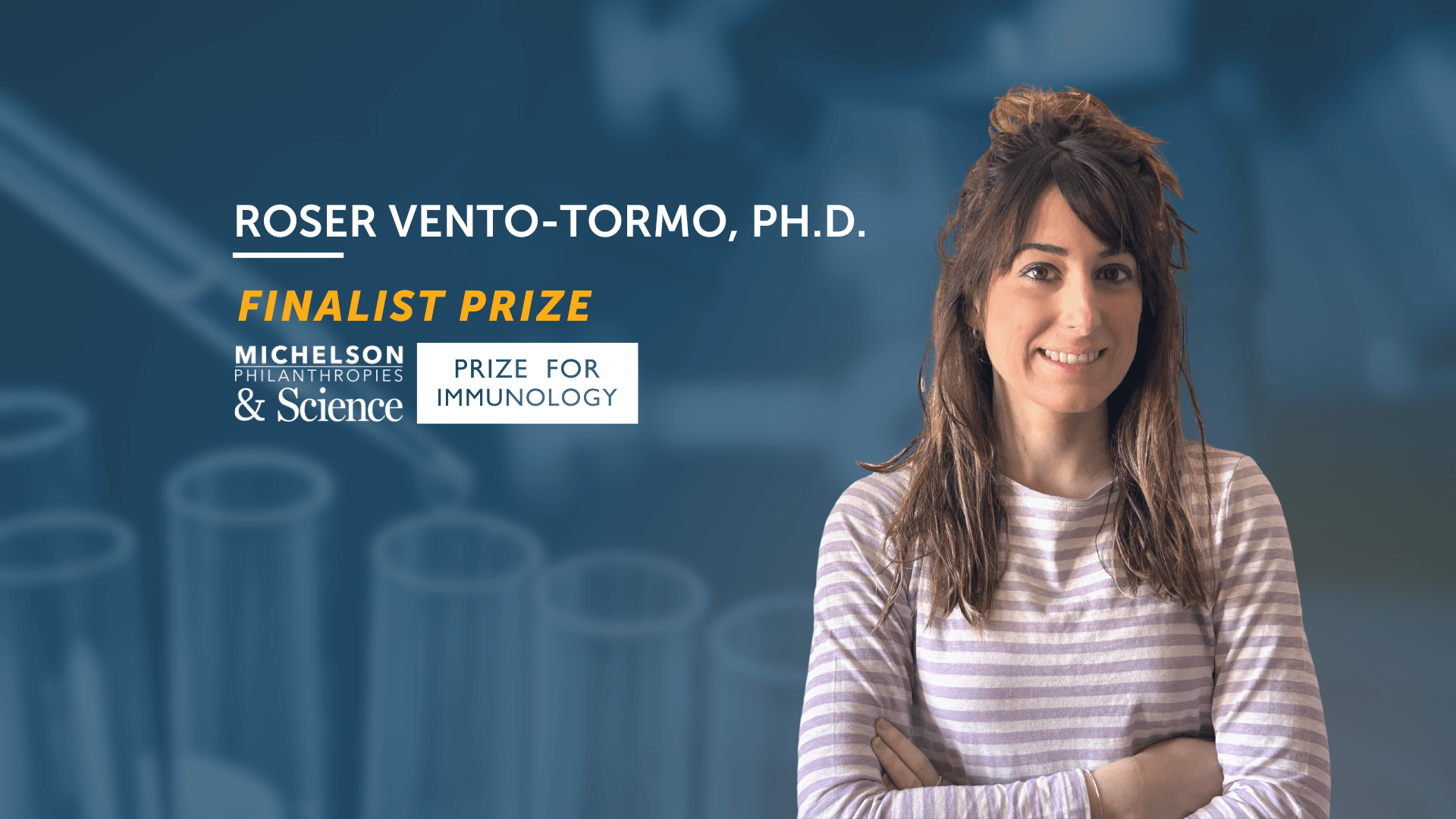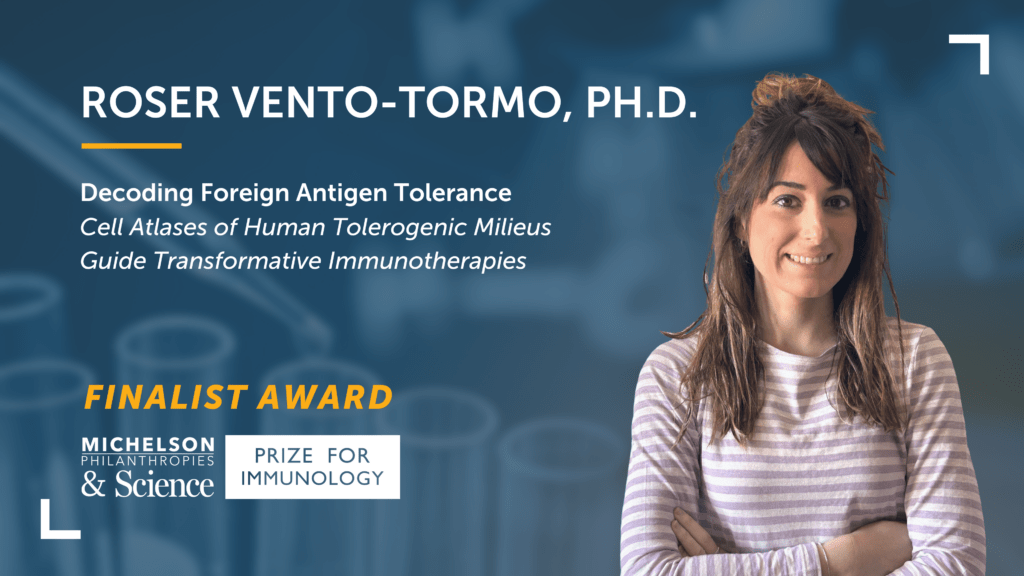
Roser Vento-Tormo was drawn to immunology by the simple question it poses: “How exactly do the cells of our body fight against the universe of pathogens we encounter every day?”
For Vento-Tormo, a researcher in the Cellular Genetics program at the Wellcome Sanger Institute, finding an answer demands the rigorous study of the processes that drive the human immune system. “To treat the vast number of diseases which involve the immune system,” she says, “we first have to comprehensively understand how the system works.”
Vento-Tormo’s work in this field, outlined in her essay ‘Decoding Foreign Antigen Tolerance’, has led to her finalist award for the 2023 Michelson Philanthropies & Science Prize for Immunology.
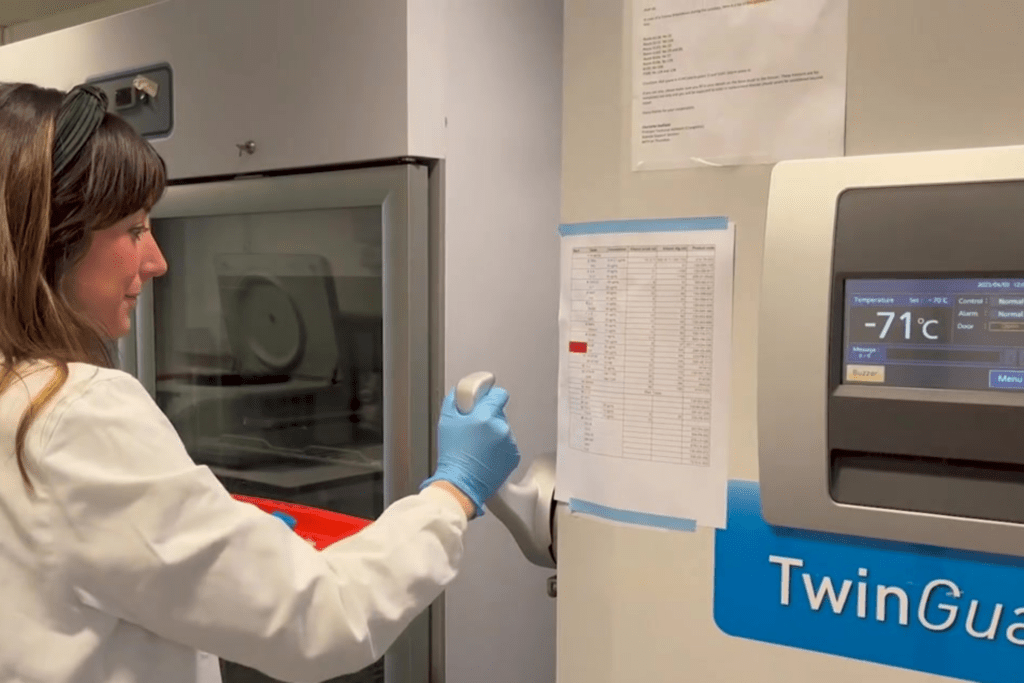
To conduct their research, Vento-Tormo and her lab use genomics and imaging tools to construct physiological environments that mimic organs such as the placenta or the testis. Through machine learning tools, Vento-Tormo and her team can analyze these replica tissues and determine the cells and regulatory processes that drive immune tolerance. Finally, Vento-Tormo says, “we leverage this information to precisely engineer stem cells into immune cell subtypes that can overcome the immunoregulatory obstacles, such as those found in the tumor microenvironment.”
It’s the sort of science that combines biological expertise and a deep understanding of quantitative subjects like mathematics and coding, fields reflected in Vento-Tormo’s studies. After receiving a BS in biotechnology from the Polytechnic University of Valencia and a Ph.D. from the University of Barcelona, Vento-Tormo completed her postdoctoral fellowship at the Wellcome Sanger Institute, a genomics research institute near Cambridge, UK. It was here that she started her current research in the Institute’s Cellular Genetics program.
Much of Vento-Tormo’s work focuses on how cells differentiate and acquire their function. For example, some cells can hone into areas where a particular immune response is necessary, while others already reside in specific tissue niches. “The choices that immune cells make – like whether to attack a pathogen or to secrete a certain antibody – are tightly controlled in the body,” Vento-Tormo explains. “If we can understand these processes better, we can then engineer immune cells to specifically recognize certain elements of the body that need to be targeted.”
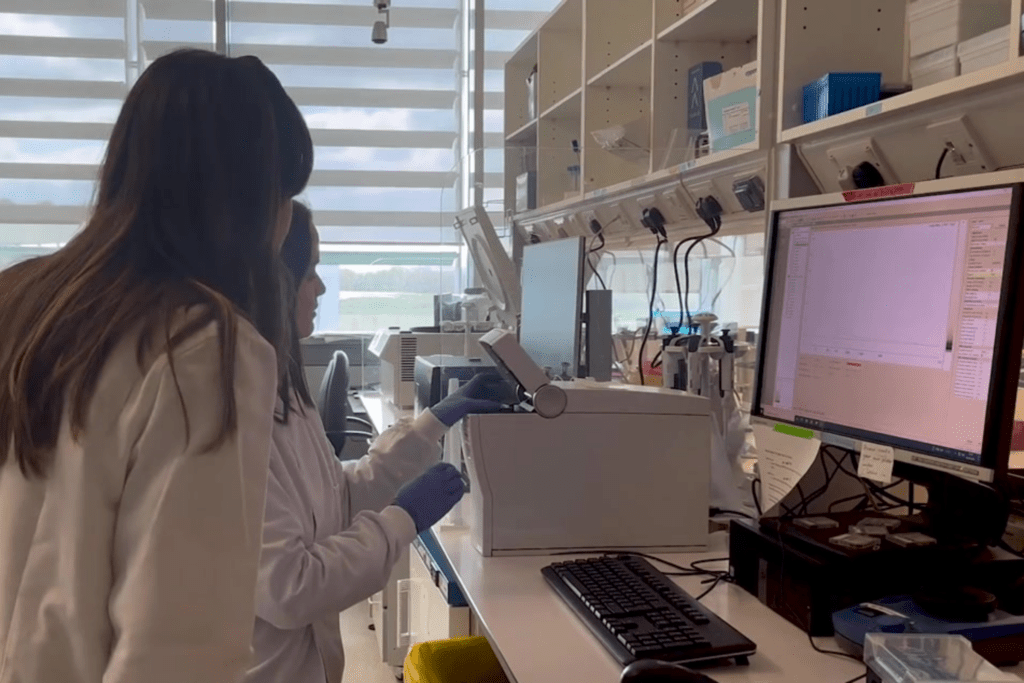
The ability to engineer immune cells to control their function would have a profound impact on immunotherapy, enabling the immune system to better target specific elements affecting the body. Treatments for different cancers, as well as for prevalent but poorly understood conditions like endometriosis, could all benefit from this area of research.
It is for these reasons that Michelson Philanthropies and Science magazine chose to recognize Vento-Tormo as a finalist award winner for the 2023 prize in immunology. Along with a $10,000 prize, her essay appears in the online edition of Science. Most importantly, the prize will strengthen the future work of Vento-Tormo and her lab, while acknowledging all that she’s achieved so far.
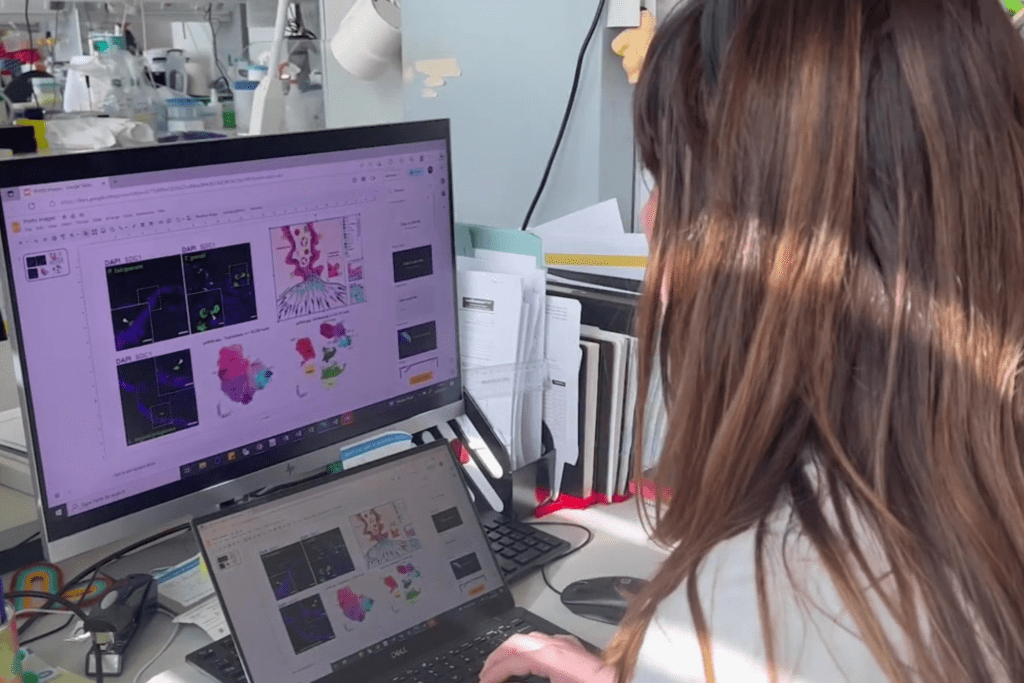
“Receiving this award is a great honor that recognizes my team’s collaborative work and vision,” Vento-Tormo says. “The award also recognizes a way of doing science that is fundamentally multidisciplinary, open and that enables thinking ‘out of the box’ – and so it greatly encourages me to carry on in this vein.”
While a simple question first attracted Vento-Tormo to immunology, the prospect of potential discovery keeps her motivated. “Science is phenomenally exciting today. Novel technological advances can open doors of discovery previously entirely closed to us. The single cell revolution in the past decade is a great example of this and one that my lab has been delighted to be part of.
“I truly believe that we are in a unique position to use these advances to design new therapies that will substantially increase the quality of life for people across the world. This wider aim – of translating discoveries into treatments that are widely available – is a great motivating factor for me.”

